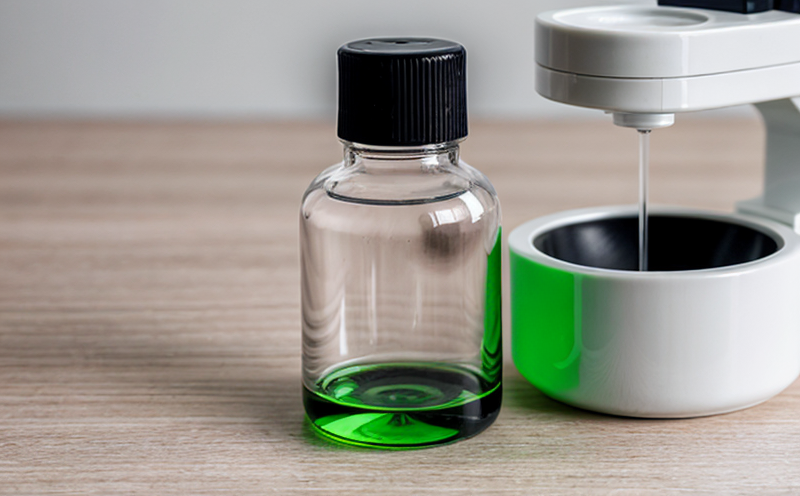Bioanalytical Assay Precision Testing
The bioanalytical assay precision testing is a critical component in pharmaceutical development, ensuring the reliability and accuracy of drug concentration measurements. This service plays a pivotal role in supporting the regulatory compliance and safety evaluation required during various stages of drug development.
At its core, this test evaluates the precision of analytical methods used to measure drug concentrations in biological matrices such as plasma or serum samples. The primary goal is to ensure that the assays are capable of reproducibly detecting minute changes in drug levels, which is essential for understanding pharmacokinetic properties and establishing bioavailability.
Pharmacokinetics (PK) involves the study of how a drug moves through the body—absorption, distribution, metabolism, and excretion. Bioavailability refers to the extent and rate at which a drug is absorbed into the bloodstream relative to an intravenous reference preparation. Together, these concepts are crucial for understanding how a drug behaves in the human body.
The precision of bioanalytical assays directly influences our ability to interpret PK data accurately. A precise assay ensures that any detected differences in drug concentrations can be attributed to true biological variability rather than analytical error. This is particularly important when assessing the efficacy and safety profile of new drugs, especially during Phase I clinical trials.
Our lab adheres strictly to international standards such as ISO/IEC 17025 for proficiency testing. We use state-of-the-art instrumentation like liquid chromatography-tandem mass spectrometry (LC-MS/MS) and ultra-performance liquid chromatography (UPLC) coupled with mass spectrometry, ensuring that our assays meet the stringent requirements set by regulatory bodies like the FDA, EMA, and WHO.
The testing process typically involves preparing biological samples from patients or test subjects. These samples are then analyzed using precise methods to determine drug concentrations over a range of expected values. The results are compared against accepted reference standards to evaluate both precision (repeatability and reproducibility) and accuracy.
Repeatability refers to the degree to which independent replicate measurements on identical specimens by a given method under specified conditions agree with each other. Reproducibility, on the other hand, measures how closely the results from one analyst can be repeated by another analyst using the same procedure.
The precision of these assays is not only important for regulatory approval but also for optimizing drug dosing regimens and identifying potential toxic effects at various stages of clinical trials. By ensuring high precision in bioanalytical testing, we contribute significantly to the success of pharmaceutical development projects.
Benefits
Enhanced reliability and accuracy of drug concentration measurements.
Supports regulatory compliance by meeting stringent international standards.
Improves the interpretation of pharmacokinetic data, aiding in better understanding of drug behavior.
Aids in optimizing drug dosing regimens and identifying potential toxic effects early in clinical trials.
Contributes to successful pharmaceutical development projects by ensuring precise analytical methods.
Industry Applications
Phase I Clinical Trials: Ensuring the safety and efficacy of new drugs.
Phase II & III Trials: Evaluating drug performance under different conditions.
Formulation Development: Optimizing drug formulations for better bioavailability.
Quality Assurance: Monitoring drug stability over time to maintain consistent efficacy.
Compliance Audits: Providing reliable data that supports regulatory compliance.
Why Choose This Test
The bioanalytical assay precision testing offers several advantages over other forms of drug concentration measurement. Firstly, it provides a high level of repeatability and reproducibility, which is essential for reliable data interpretation. Secondly, by adhering to international standards like ISO/IEC 17025, we ensure that our results are accepted globally, facilitating seamless collaboration between different regulatory bodies.
Another key benefit is the ability to detect minute changes in drug concentrations, which can be crucial for understanding complex pharmacokinetic interactions. This level of precision allows us to identify potential issues early in clinical trials, thereby reducing development costs and time. Additionally, our testing contributes significantly to ensuring that drugs meet safety standards, protecting both patients and healthcare providers.
The use of advanced instrumentation like LC-MS/MS ensures that we can measure drug concentrations with high sensitivity and specificity, further enhancing the reliability of our results. This technology also allows us to analyze multiple compounds simultaneously, making it an efficient solution for complex pharmaceutical projects.
Finally, by providing precise data on drug metabolism, distribution, and excretion, we help pharmaceutical companies make informed decisions about dosage forms, dosing schedules, and potential side effects. This information is invaluable in ensuring that drugs are both safe and effective when used as intended.





